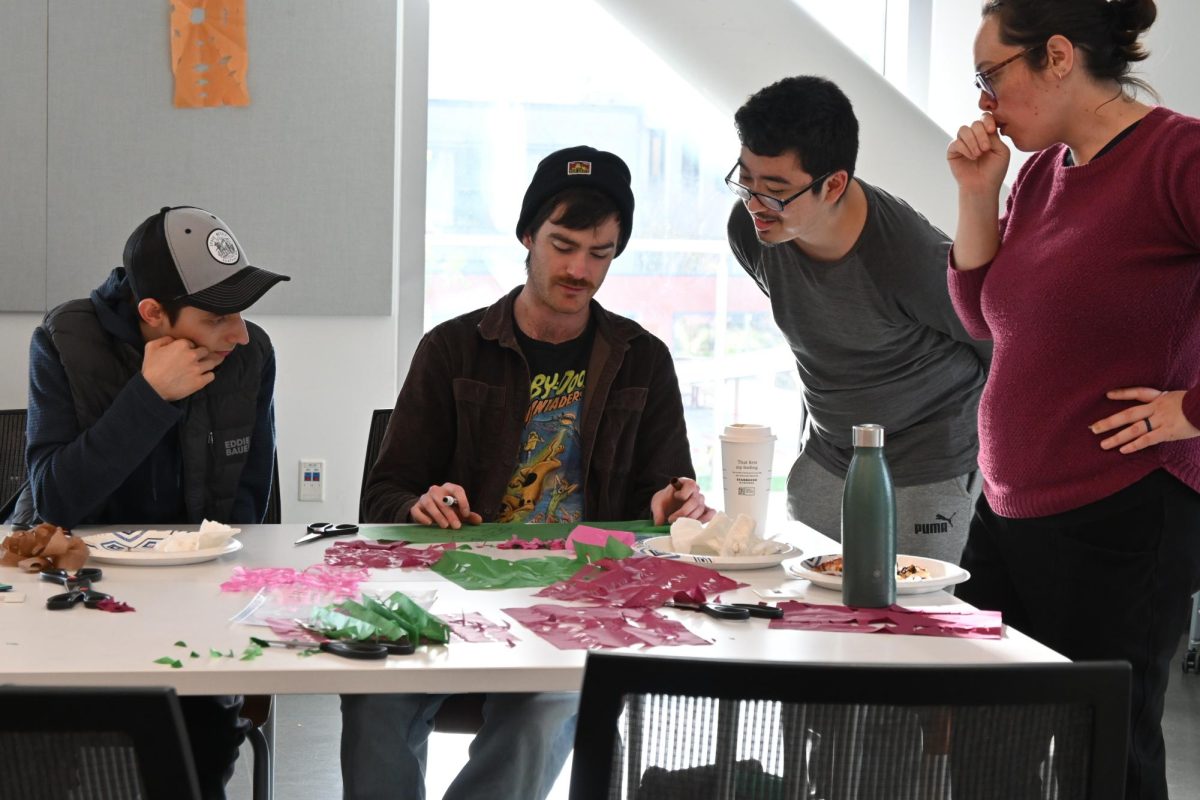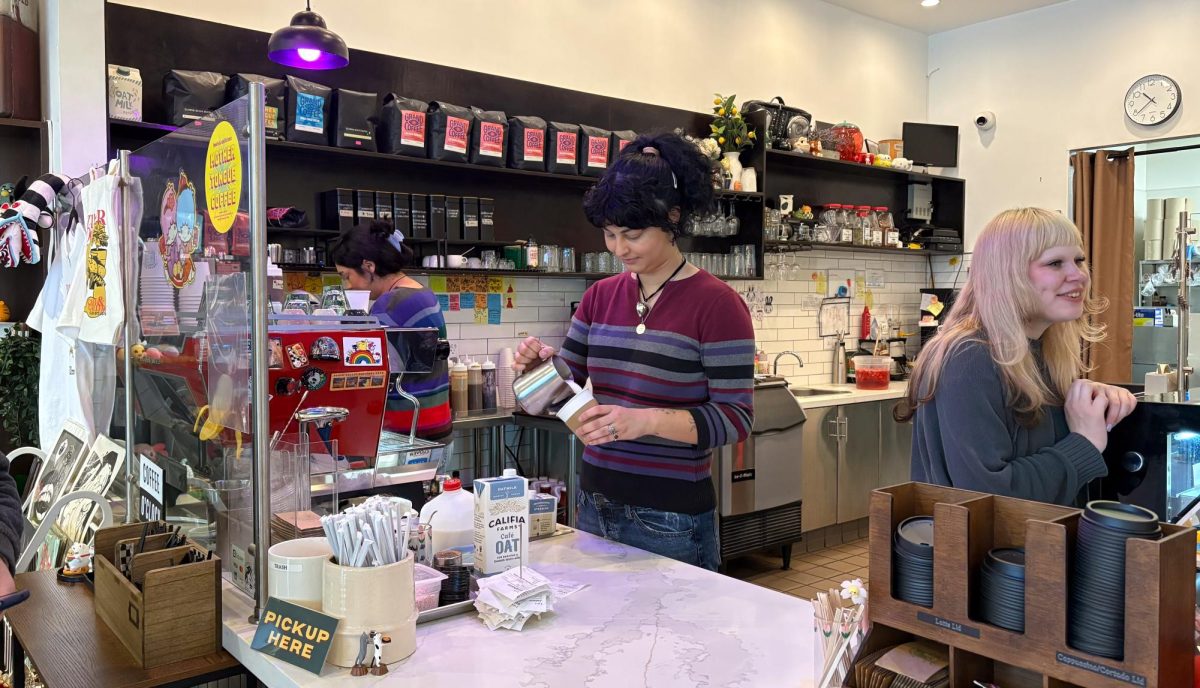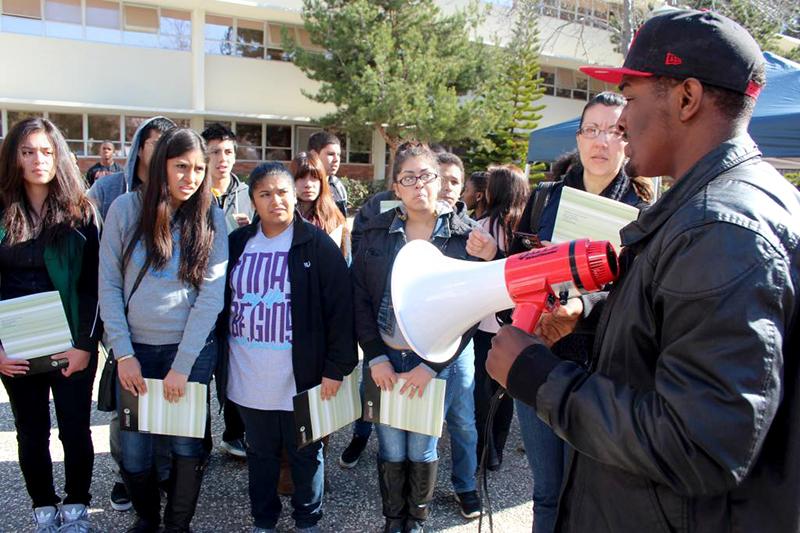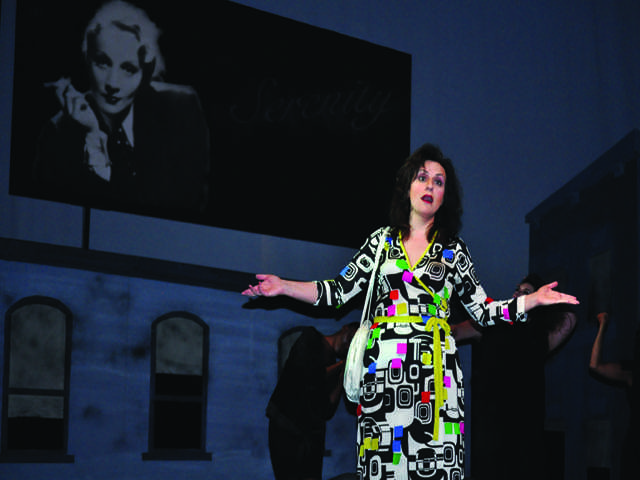Creative writing teacher Aaron Jason says students did not believe him
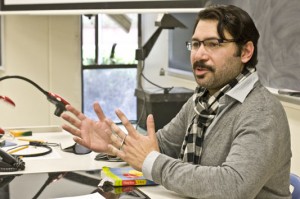 After living in his Volkswagen van for a year and a half, English professor Aaron Jason is advocating for the rights of the homeless while ensuring his students the best education he can provide.
After living in his Volkswagen van for a year and a half, English professor Aaron Jason is advocating for the rights of the homeless while ensuring his students the best education he can provide.
A Los Angeles native, Jason moved to the Bay Area after high school to attend CSU East Bay as an undergraduate majoring in philosophy and English before spending sometime in New York for post-graduate studies.
Jason fell in love with the Bay, and decided to move back to San Francisco where he became an “accidental teacher” for CSUEB, teaching creative writing classes 11 years ago.
“I wasn’t planning on becoming a teacher, but I covered some classes and I enjoyed it,” said Jason, who teaches creative writing, fantastical literature and gay and lesbian literature. “I love teaching.”
Being a non-tenured professor, Jason’s salary is directly related to how many classes he teaches, and the recession forced CSUEB to cut courses.
“We had a great department chair who had a meeting with all of us,” said Jason. “We knew that classes were going to be cut and things were going to look bad.”
Classes were subsequently cut, and as the school moves toward a science, technology, engineering and math—or STEM—core, creative literature courses are sparse.
Jason, who had mounting debt from student loans and admittedly “overspending,” had to reevaluate his budget in order to solve his own financial crisis.
“I looked at my budget and I just realized that my rent was the big thing that had to go,” explained Jason. “So I did my research and bought a VW van around the same time I was moving out of my apartment.”
After living in one of the most expensive cities in the United States for about a decade, Jason was in no rush to leave.
“I decided to stay in my neighborhood,” said Jason. “I have my same neighbors, I can go to the same local stores that I endorse and my politics are here.”
It was important for Jason to have his own space in the city so he created a temporary situation for himself that wouldn’t cause his work to suffer.
“I’m dealing with the financial crisis just like other Americans,” added Jason. “In 2008, so many people had the rug pulled out from under them. Everyone was losing money.”
Wanting to maintain some independence, living in his van has allowed him to still be able to afford groceries, stay focused on his work and not have to move back to L.A.
“I’m a lot better off than some people,” he said. “I can take care of myself, just not the rent.”
A member of 24-hour Fitness, Jason has full facilities to take care of hygiene routines and access the shower facilities in the athletic gym locker rooms.
While he adjusted to living in his car—or being vehicularly housed—Jason started looking for resources to help him and others in similar situations.
San Francisco, which has an estimated homeless population of 6,500, has many resources available for the homeless, like shelters and food banks.
But Jason couldn’t find a unified system that connected vehicularly housed people together as one community.
“I was shocked that there was no network,” explained Jason. “San Francisco is really trying to crack down on the homeless. I wanted there to be a place where people could come together and talk about the issue so we can help resolve the problem with the city.”
Jason actually got the idea from Wal-Mart. The mega-store allows travelers and RVs going across country to park in their lots over night, encouraging them to get supplies at their store.
The city could provide similar options and create something similar to the successful Project Homeless Connect, but for those living in their cars.
“This would make it easier for people to get together once a month,” said Jason. “It can be done.”
Getting together the vehicularly housed community to talk about what issues the city has with them will help remedy situations, making San Francisco officials more tolerant of their situation.
After an article was written in the San Francisco Examiner in January about people living in their cars, Jason was surprised to find that the reporter couldn’t find anyone willing to talk.
“I read it and I thought, ‘Really? You couldn’t find one person living in their van wanting to speak?’” said. “So I wrote a letter and told the reporter that I had a lot to say.”
After a two hour follow-up interview with the same reporter, a story was published explaining that he was a homeless professor living in his van, but little information was given about his unified community suggestion.
“I said that we need to decriminalize living in your car,” he said. “The face of homelessness has really changed. I have whole families living next door to me that send their children off to school in the morning. The article left all of that out.”
After the story was published, Jason received no negative backlash from the administration, his co-workers or his students. In fact, until Pioneer WebTV reporter Rayna Fields inquired about doing a story on him, no one had really acknowledged it much.
“I think my students almost didn’t believe me until Rayna came in with her camera,” said Jason. “My students and fellow faculty are really supportive.”
Jason’s story is important for students to hear because it illustrates how tuition hikes and fee increases don’t go to the faculty.
“Professors are hurting too,” he said. “It might be a shock for students, but a lot of times they have better healthcare than the people teaching them. I take responsibility for my situation, but I am disappointed with the state and the state of things.”
Jason hopes he is in a transitional period and feels that he will probably have a “traditional roof” over his head in two or three years.
“What it comes down to is I love this university,” said Jason. “I want to teach here forever. I enjoy the students and the dynamic. I guess I’m determined to stay.”
Until his situation improves and he can move back into a house or apartment, what are Jason’s plans?
“I’m considering adopting a dog,” he said. “A little dog, but one that barks. It’ll help scare the people away and protect my van.”



